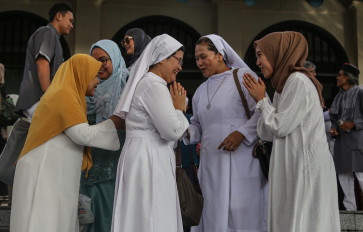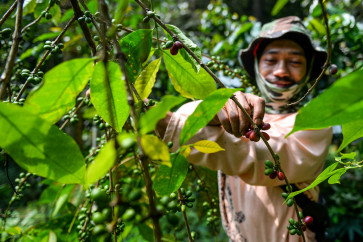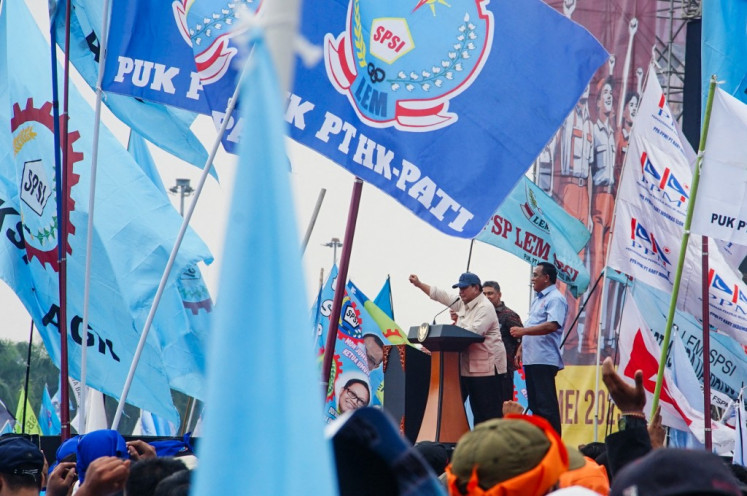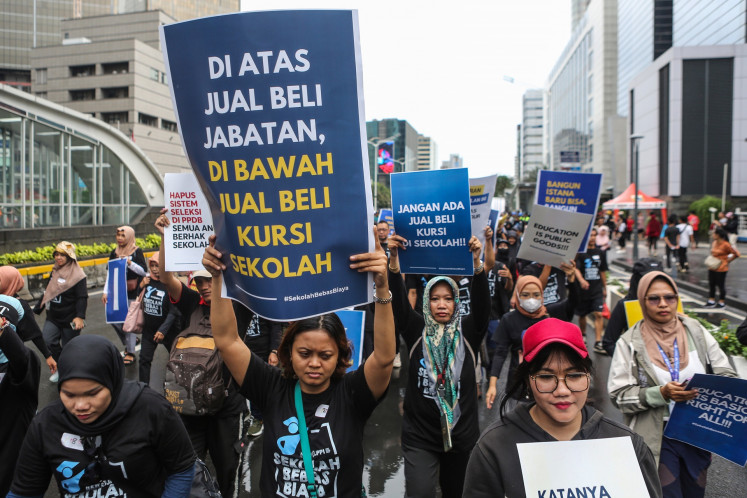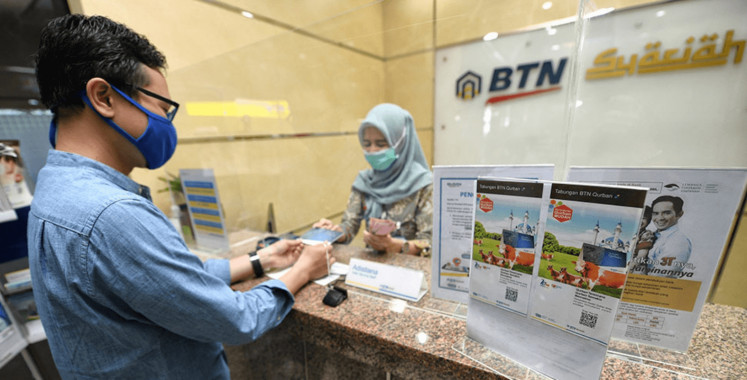19 smelting plants expected to begin operation by 2017
At least 19 metal processing and refining facilities are currently either under construction or subject to feasibility study as part the country’s efforts to comply with a law banning ore exports beginning 2014, the Energy and Mineral Resources Ministry has reported
Change text size
Gift Premium Articles
to Anyone

A
t least 19 metal processing and refining facilities are currently either under construction or subject to feasibility study as part the country’s efforts to comply with a law banning ore exports beginning 2014, the Energy and Mineral Resources Ministry has reported.
Of the 19 facilities, seven are now in the construction phase, six under examination for feasibility and the remaining six have just obtained construction permits. Those facilities will begin commercial operations between 2012 and 2017.
“This year, an iron smelter producing sponge iron with a total production capacity of 500,000 tons per year will begin operations. The smelter is being built by Indoferro,” said minerals and coal director general Thamrin Sihite in Jakarta on Tuesday.
The construction of the processing and refining facilities is part of the mining industry’s efforts to meet the requirement of the 2009 Law on Minerals and Coal, which has ordered a stop to ore exports in two years’ time.
The requirement is contained in the 2012 ministerial regulation on added value for mineral commodities through processing and refining, which was issued recently as part of the implementation of the law.
The regulation sets minimum limits of mineral content in processed products for export. For instance, for copper, gold and silver, the limit is 99 percent. “This policy aims to conserve our natural resources as well as improve their economic benefits. If the ores are refined, their value will increase. The presence of smelters will also provide job opportunities for locals,” Thamrin explained.
According to the ministry’s data, state miner PT Aneka Tambang (Antam) plans to build four smelters in Halmahera, North Maluku (ferronickel); Mandiodo, Southeast Sulawesi (nickel pig iron); Mempawah, West Kalimantan (smelting grade alumina); and Gresik, East Java (gold, silver and copper).
However, the Gresik project has been suspended due to the results of a study that says the project is not economical.
State steel-maker PT Krakatau steel and Korea-based Posco have also teamed up to build a production plant in Cilegon, Banten, with a total production of 3.5 million tons of steel plate, 2.5 million tons of steel slab and 3 million tons of hot-rolled coil steel per year.
Nickel producer PT Vale Indonesia is now conducting a feasibility study for building a smelter in Pomalaa, Southeast Sulawesi, with a production capacity of 48,800 tons per year. The smelter is projected to begin operations in 2017.
Regarding coal in Prabumulih, South Sumatra, Pendopo Coal Gasification and Pendopo Coal Upgrading are also conducting feasibility studies for coal gasification and coal upgrading facilities. The coal gasification is expected to start in 2016 and the coal upgrading in 2013.
As reported earlier, the government has given three months for all mineral mining companies in
the country to submit comprehensive proposals on their strategies to comply with the ore-export ban
in 2014.
The proposals must include how they will process and refine their raw commodities, whether they will build their own smelters, cooperate with other companies to build smelters or refine their ore in external smelting plants.

